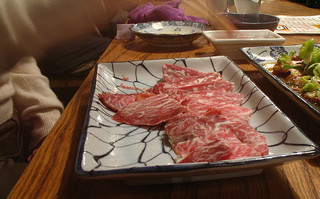
The discovery in Ireland of horsemeat in frozen food products labeled as beef has mushroomed into a scandal implicating millions of consumers in at least five European nations, raising doubts about oversight and food safety.
In initial tests, Irish inspectors found what they described as “traces” of pig and horse DNA in some beef burgers. Further testing has uncovered that eleven out of eighteen frozen beef lasagnas sold by Findus, a frozen food corporation, contain between 60 and 100 percent horsemeat.
The mislabeling of horsemeat as beef casts doubt upon food safety regulation and the quality of oversight in food production. European food regulators have in the recent past been widely criticized for the mishandling of food safety issues, including mad cow disease and dioxins in chickens and eggs.
The sale of horsemeat is not illegal in Europe, and in fact is common on the continent. Its consumption has not been proven to be a greater threat to health than other meats.
However in English culture, where one can find such dishes as tripe (cow and pig stomach) and black pudding (a sausage made by cooking blood), the consumption of horse is widely considered taboo.
The New York Times describes, “few things divide British eating habits from those of Continental Europe as clearly as a distaste for consuming horse meat,” to which NPR adds, “the idea of eating a horse in peacetime is as generally repugnant as grilling one the queen’s corgis and gobbling it up with ketchup and fries.”
Findus and other prepared food companies have recalled their products and supermarkets have removed them from the shelves in England, Ireland, Luxembourg, Poland, the Netherlands, and Sweden.
Meanwhile, the ensuing legal battle of blame exposes the complexity of food production in the European market. Findus France supplied frozen products to England, which were made by a French company in Luxembourg called Comigel, which sourced its beef from the French firm Spanghero, which used an agent in Cyprus, who used an agent in the Netherlands, who ordered the meat from an abbatoir in Romania.
Spanghero has threatened to take the Romanian supplier to court, while Findus France is making the same threat against Spanghero.
The extent and consequences of this deception are yet to be fully uncovered, especially in England, where consumers are culturally mortified by the consumption of horsemeat.
“This isn’t really about food safety; it’s about effective food labeling; its about proper retail practice,” said Prime Minister David Cameron in Brussels. “And people will be very angry to find out they have been eating horse when they thought they were eating beef.”

